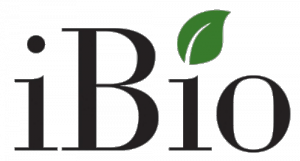 iBio, Inc recently announced that the company was approved for a new U.S. patent entitled “Yersinia pests Antigens, Vaccine Compositions and Related Methods.” The scope of this new patent includes plague antigens combined with the Company’s iBioModulator™ thermostable immunomodulator protein, which uses unmodified green plants instead of the traditional biological materials to produce important biologicals such as monoclonal antibodies, therapeutic proteins and vaccines for diseases such as Pulmonary Fibrosis and Scleroderma.
iBio, Inc recently announced that the company was approved for a new U.S. patent entitled “Yersinia pests Antigens, Vaccine Compositions and Related Methods.” The scope of this new patent includes plague antigens combined with the Company’s iBioModulator™ thermostable immunomodulator protein, which uses unmodified green plants instead of the traditional biological materials to produce important biologicals such as monoclonal antibodies, therapeutic proteins and vaccines for diseases such as Pulmonary Fibrosis and Scleroderma.
The patent is based on previous findings published in the journal Vaccine showing that a recombinant plague vaccine combined with the iBioModulator™ thermostable immunomodulator protein, and produced via the iBioLaunch™ gene expression platform in green plants gave complete protection of non-human primates against aerosolized Y. pestis (pneumonic plague), a potential biological weapon, by increasing the potency of the immune response induced by vaccination and the duration of the response.
[adrotate group=”7″]
The technology behind this new patent was developed by researchers at the Fraunhofer USA Center for Molecular Biotechnology, which is owned by iBio, Inc. “The achievements with plague vaccine are just one application of iBio’s core technology — the iBioLaunch™ gene expression platform — that enables advantageous plant-based development and manufacture of monoclonal antibodies and other therapeutics, as well as vaccines,” said Robert Erwin, iBio’s president, in the press release.
Erwin added that the company’s main goal is to apply their iBioLaunch™ technology for the development and production of products for various fibrotic diseases, including idiopathic pulmonary fibrosis and scleroderma. According to this year’s U.S. Centers for Disease Control report, the influenza vaccine offered comparatively lower protection when compared with previous years. This is mainly due to the fact that the majority of H3N2 virus strains predominant in this time of year differed from the H3N2 virus strains used to manufacture the vaccine.
One of the major advantages of the iBio vaccine technology is the potential to rapidly produce influenza vaccines, reducing time needed by the U.S. Food and Drug Administration to select optimal virus strains for vaccine production — usually in the beginning of February — as well as the time needed for production of the vaccine.

